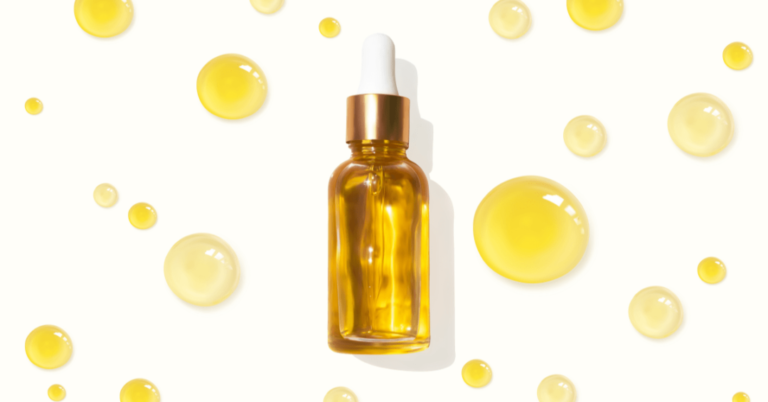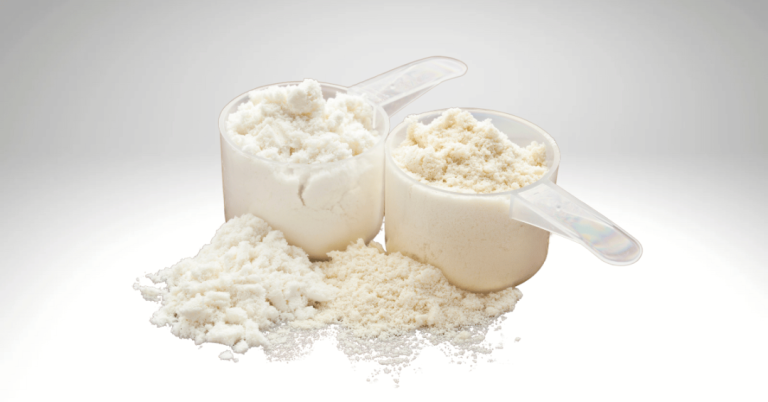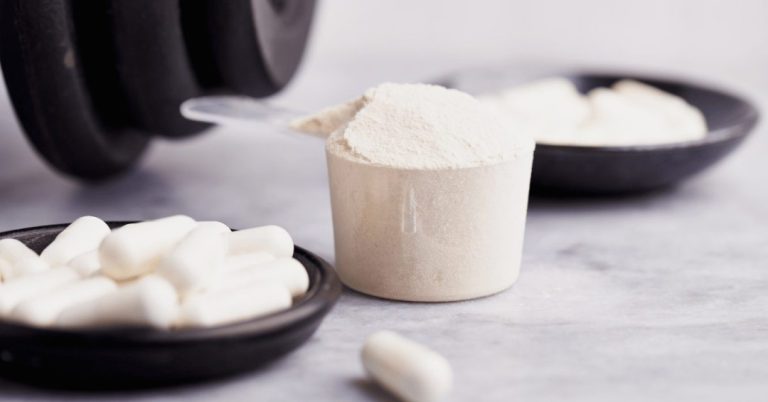Fueling Success: Best Weight Loss Supplements for Women
Some links on this page are affiliate links (including Amazon Associate links) which means that, if you choose to make a purchase, we may earn a small commission at no extra cost to you. We greatly appreciate your support!
Successful weight loss requires a holistic approach, and the right dietary supplements can be powerful friends in achieving your goals. In this comprehensive guide, we’ll delve into six key categories of the best weight loss supplements for women: probiotics, fruit and vegetable supplements, menopause supplements, magnesium, collagen, and amino acids. These supplements are designed to address specific needs, support overall well-being, and enhance the effectiveness of your weight loss strategy. Explore the science, benefits, and practical aspects of incorporating these supplements into your daily routine and unlock the potential for transformative weight loss results.
As we explore probiotics and discover how these beneficial microorganisms not only contribute to digestive health but also help support weight regulation. We will show how fruit and vegetable supplements provide a vibrant array of nutrients and offer a convenient way to boost your diet’s nutritional profile and support weight loss. Additionally, we will look at how menopause supplements targeted formula includes a powerful punch that can assist women during this crucial phase of life, addressing specific challenges and optimizing well-being. We’ll also explore the world of magnesium, collagen, and amino acids. These essential components play unique roles in supporting metabolism, preserving lean muscle mass, and influencing various aspects of weight management.
Whether you’re at the beginning of your weight loss journey or seeking to optimize an established routine, our guide aims to empower you with knowledge, ensuring informed decisions that align with your health and fitness goals. Join us as we navigate the dynamic landscape of women’s weight loss supplements, providing you with the tools to unlock success and embrace a healthier, more vibrant lifestyle.
1. Probiotics for Weight Loss
Probiotics have gained significant attention for their potential role in weight management. The gut microbiome, home to trillions of microorganisms, plays a crucial role in digestion, nutrient absorption, and even metabolism. Certain strains of probiotics have been studied for their ability to influence success when trying to lose weight.
One key means is the impact on inflammation. Chronic inflammation is linked to obesity, insulin resistance, and metabolic dysfunction. Probiotics, particularly those from the Lactobacillus and Bifidobacterium families, may help reduce inflammation in the gut and systemically. By doing so, they can create an environment that supports metabolic health, making it easier for individuals to manage their weight.
Also, probiotics may enhance insulin sensitivity, which is vital for regulating blood sugar levels. Improved insulin sensitivity can contribute to better control over cravings and the body’s ability to use glucose efficiently, potentially preventing excess storage as fat.
Whether through supplements or fermented foods, understanding how probiotics influence weight-related processes allows individuals to make informed choices when trying to lose weight.
How Long Does It Take Probiotics To Help You Lose Weight?
- The time it takes for probiotics to show an impact on weight loss can vary among individuals.
- Factors such as the specific probiotic strain, the individual’s gut microbiome, lifestyle, and diet all play a role in determining how quickly any changes may occur.
- Consistent and long-term consumption of probiotics may be essential for sustained benefits.
- It’s crucial to note that probiotics are not a standalone solution for weight loss. A holistic approach, including a balanced diet and exercise, is integral to achieving and maintaining a healthy weight.
2. Fruit and Vegetable Supplements
Meeting the recommended daily intake of fruits and vegetables is a challenge for many individuals due to busy lifestyles, dietary preferences, or limited access to fresh produce. Fruit and vegetable supplements offer a convenient solution to ensure individuals still obtain the essential nutrients found in these food groups.
These supplements capture the essence of whole foods by extracting concentrated forms of vitamins, minerals, antioxidants, and phytochemicals. While they may not replicate the fiber content entirely, they provide a concentrated source of the micronutrients crucial for overall health and to promote weight loss.
Our comprehensive guide spotlights various fruit and vegetable supplements, emphasizing those with minimal additives and processing to retain the maximum nutritional value. From the vibrant anthocyanins in berries to the immune-boosting power of citrus fruits, we’ll guide you through the spectrum of supplements available.
Additionally, we discuss the synergy between these supplements and a balanced diet. Understanding how fruit and vegetable supplements complement whole-food choices allows individuals to customize their approach to meet specific dietary needs. Whether you’re looking to enhance your nutrient intake or ensure you don’t miss out on vital vitamins and minerals, our guide will empower you to make informed decisions about incorporating fruit and vegetable supplements into your daily routine.
Can I take vitamins instead of eating fruits and vegetables?
While fruit and vegetable supplements can offer a convenient way to supplement your nutrient intake, they should not replace whole fruits and vegetables in a healthy diet. Whole foods provide a myriad of health benefits beyond individual nutrients, including fiber and phytochemicals that contribute to overall well-being. A balanced and diverse diet that includes a variety of fruits, vegetables, and whole foods remains the cornerstone of a healthy lifestyle.
3. Menopause Supplements for Weight Loss
The menopausal transition is a unique phase in a woman’s life, marked by hormonal changes that can impact various aspects of health, including weight management. Menopause supplements designed for weight loss aim to address these specific challenges, offering targeted support to navigate this stage of life.
Black cohosh, a botanical extract, is one key ingredient known for its potential to alleviate symptoms associated with menopause, including weight gain. Soy isoflavones, another common component in menopause supplements, may offer hormonal balance and support bone health. Additionally, omega-3 fatty acids, often derived from fish oil, can contribute to overall well-being during menopause.
Our guide on menopause supplements for weight loss will dive into the science behind these ingredients, providing insights into how they may mitigate the effects of hormonal fluctuations on metabolism and body composition. We’ll also discuss lifestyle factors, dietary considerations, and the importance of a holistic approach to weight management during menopause. By understanding the potential benefits of these supplements, women can make informed choices that align with their individual needs and preferences during this significant life stage.
How can I lose weight fast during menopause?
Losing weight during menopause can be challenging due to hormonal changes, but it’s possible with a combination of healthy lifestyle habits. Here are some tips:
- Balanced Diet:
- Focus on nutrient-dense foods such as fruits, vegetables, lean proteins, and whole grains.
- Control portion sizes to manage calorie intake.
- Regular Exercise:
- Include both cardiovascular exercises (like walking, jogging, or cycling) and strength training to boost metabolism and maintain muscle mass.
- Aim for at least 150 minutes of moderate-intensity exercise per week.
- Stay Hydrated:
- Drink plenty of water to stay hydrated, and avoid sugary beverages.
- Adequate Sleep:
- Ensure you get quality sleep as insufficient sleep can affect metabolism and contribute to weight gain.
- Manage Stress:
- Practice stress-reducing techniques such as yoga, meditation, or deep breathing.
- High stress levels can impact hormones and lead to weight gain.
- Hormone Replacement Therapy (HRT):
- Consult with a healthcare professional about the potential benefits and risks of hormone replacement therapy.
- Limit Processed Foods:
- Reduce intake of processed foods high in added sugars and unhealthy fats.
- Consult a Professional:
- Seek guidance from a registered dietitian or healthcare provider to create a personalized plan tailored to your needs.
Remember, rapid weight loss may not be sustainable or healthy. Aim for gradual, steady progress, and prioritize overall well-being during the menopausal transition. Always consult with healthcare professionals for personalized advice based on your health status.
4. Best Magnesium Supplements
Magnesium is a vital mineral involved in numerous physiological processes, and its role in weight management should not be underestimated. From energy production to muscle function, magnesium plays a crucial part in supporting overall well-being during a weight loss journey.
In our guide to the best magnesium supplements for weight loss, we’ll delve into the science behind magnesium’s impact on metabolism and insulin sensitivity. We highlight different forms of magnesium supplements, such as magnesium citrate and magnesium glycinate, emphasizing their bioavailability and potential benefits. Understanding how magnesium contributes to maintaining a healthy weight and supporting various bodily functions empowers individuals to make informed choices for their supplement regimen.
Additionally, we discuss dietary sources of magnesium, ensuring a comprehensive understanding of how to incorporate this essential mineral into your overall nutritional strategy for weight loss.
What is the difference between magnesium citrate and glycinate?
Magnesium citrate and magnesium glycinate differ in terms of their composition, absorption, and potential benefits. Here’s a breakdown of the differences:
- Composition:
- Citrate: This form is a combination of magnesium and citric acid. It is often used as a laxative due to its ability to draw water into the intestines, softening the stool and promoting bowel movements.
- Glycinate: This form is created by bonding magnesium with the amino acid glycine. Glycine is known for its calming properties.
- Absorption:
- Citrate: Generally, magnesium citrate has good bioavailability, and it is absorbed relatively well in the digestive tract. It is water-soluble and can be absorbed both actively and passively.
- Glycinate: This form is also well-absorbed, and it tends to be less likely to cause a laxative effect compared to magnesium citrate. The presence of glycine may enhance the absorption of magnesium.
- Laxative Effect:
- Citrate: Known for its laxative properties, magnesium citrate is often used to relieve constipation.
- Glycinate: This form is less likely to have a laxative effect, making it a preferred choice for those looking to avoid gastrointestinal disturbances.
- Calming Effects:
- Citrate: While magnesium, in general, may have calming effects on the nervous system, magnesium citrate is not specifically recognized for its calming properties.
- Glycinate: Glycine is an amino acid with relaxing and calming properties. Therefore, magnesium glycinate may be chosen for its potential to promote relaxation and aid in sleep.
- Suitability:
- Citrate: Suitable for individuals looking for a magnesium supplement with the added benefit of relieving constipation.
- Glycinate: Suitable for those seeking a form of magnesium that is well-absorbed with minimal risk of causing digestive discomfort.
5. Best Collagen Supplements for Weight Loss
Collagen, the most abundant protein in the body, is a crucial component of connective tissues, skin, and more. While renowned for its role in promoting skin elasticity, collagen also offers potential benefits for weight loss and body composition.
As we explore the best collagen supplements for weight loss, we’ll focus on the collagen peptide form, known for its easy absorption. We’ll discuss how collagen supplementation may support a healthy metabolism, preserve lean muscle mass, and contribute to a feeling of fullness, which can aid in controlling appetite.
Our guide will delve into the latest science behind collagen’s role in weight management, providing insights into its potential impact on body composition and overall well-being. Whether you’re aiming to enhance skin health or seeking a protein supplement with additional benefits for weight loss, understanding the considerations and options in the realm of collagen supplements is essential.
What type of collagen is best for weight loss?
When considering collagen supplements for potential weight loss benefits, collagen peptides (hydrolyzed collagen) are often recommended. Collagen peptides are a type of collagen that has undergone a process called hydrolysis, breaking down the larger collagen molecules into smaller, more easily absorbed peptides. Here are reasons why collagen peptides are commonly considered the best type for weight loss:
- Bioavailability: Collagen peptides have high bioavailability, meaning they are easily absorbed by the body. This ensures that the beneficial components of collagen, such as amino acids, are efficiently utilized.
- Amino Acid Profile: Collagen is rich in specific amino acids, including glycine, proline, and hydroxyproline. These amino acids play essential roles in supporting overall health, metabolism, and tissue repair.
- Appetite Control: Protein, including collagen, can contribute to a feeling of fullness. This satiating effect may help control appetite and reduce overall calorie intake, potentially supporting weight loss efforts.
- Muscle Preservation: Collagen provides the body with essential amino acids needed for muscle maintenance and repair. Preserving lean muscle mass is crucial during weight loss, as it helps maintain metabolic rate.
- Collagen’s Impact on Metabolism: While more research is needed, some studies suggest that collagen supplementation may influence metabolism. For example, collagen’s influence on muscle mass could indirectly affect metabolic rate.
- Skin Elasticity: While not directly related to weight loss, collagen’s role in promoting skin elasticity is noteworthy. As individuals lose weight, maintaining skin health can be important, and collagen may contribute to skin elasticity.
6. Best Amino Acid Supplements
Amino acids are the building blocks of proteins, essential for muscle repair, growth, and various metabolic processes. The role of amino acids in weight loss extends beyond mere muscle support, as certain amino acids can influence energy levels, metabolism, and appetite regulation.
In our guide to the best amino acid supplements for weight loss, we focus on key players like branched-chain amino acids (BCAAs) and essential amino acids (EAAs). We uncover how BCAAs, including leucine, isoleucine, and valine, can contribute to muscle preservation during calorie restriction and potentially enhance fat loss.
Moreover, we discuss the potential benefits of EAAs, which the body cannot produce on its own and must be obtained through diet or supplementation. Understanding how amino acids influence various aspects of weight management, from muscle retention to metabolic support, empowers individuals to make informed choices about incorporating these supplements into their weight loss strategy.
What is the best source of all the amino acids?
The best source of all essential amino acids, often referred to as a “complete protein,” is animal-based protein. Animal sources naturally contain all nine essential amino acids that the human body cannot produce on its own. Here are some excellent sources of complete proteins:
- Meat: Beef, poultry, pork, lamb, and game meats are rich in all essential amino acids.
- Fish: Most fish and seafood, including salmon, tuna, and cod, provide complete proteins.
- Eggs: Eggs are considered one of the most complete and bioavailable protein sources.
- Dairy: Milk, cheese, and yogurt from animal sources contain all essential amino acids.
- Poultry: Chicken and turkey are excellent sources of complete proteins.
- Seafood: Shrimp, crab, lobster, and other shellfish are complete protein sources.
For individuals following a vegetarian or vegan diet, obtaining all essential amino acids may require combining different plant-based protein sources. While most plant-based foods are not complete proteins on their own, combining complementary sources can create a balanced amino acid profile. Examples of complementary plant-based protein combinations include:
- Legumes and Grains: Pairing beans or lentils with rice, quinoa, or whole grains.
- Legumes and Nuts/Seeds: Combining beans or lentils with nuts or seeds.
- Grains and Nuts/Seeds: Mixing whole grains with nuts or seeds.
- Legumes and Vegetables: Including a variety of vegetables with beans or lentils.
Conclusion
We’ve unraveled the realms of the best weight loss supplements for women, focusing on probiotics, fruit and vegetable supplements, and menopause supplements. As you explore each category, you’ll gain insights into how these supplements can complement your health and fitness strategy and contribute to your weight loss goals. Stay tuned for upcoming articles, where we’ll dive deeper into specific product recommendations, dosage guidelines, and the seamless integration of these supplements into your daily routine. It’s time to unlock the power within and embark on a transformative journey towards a healthier, more vibrant you.





